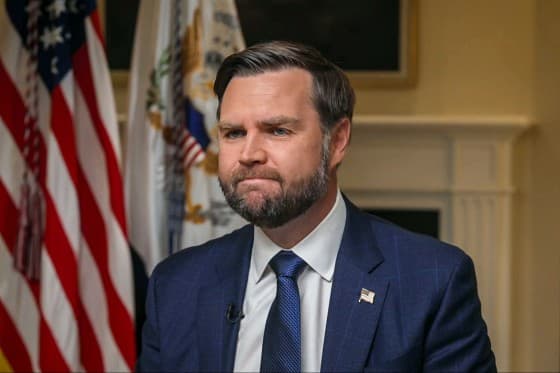Senator JD Vance Questions US Influence on Ukraine Ceasefire, Citing Russian Stance

Senator J.D. Vance (R-OH) has expressed skepticism regarding the United States' ability to unilaterally influence the ongoing conflict in Ukraine, particularly concerning Russia's willingness to engage in a ceasefire. His recent remarks suggest that Russia's motivations are complex and largely beyond American control.
"Russia doesn't want a ceasefire for complicated reasons. We don't control what Russia does, if we did the war would have been over 7 months ago," Senator Vance stated in a tweet shared by Visegrád 24.
This statement aligns with Vance's consistent foreign policy stance, which often advocates for a more restrained U.S. role in international conflicts and prioritizes domestic concerns. He has previously voiced reservations about the extensive U.S. financial and military aid to Ukraine and the potential for prolonged American involvement. Vance's perspective highlights a belief that the U.S. possesses limited leverage over Russia's strategic decisions, including its inclination towards peace negotiations.
The Russia-Ukraine conflict has seen numerous attempts at ceasefire discussions, none of which have resulted in a lasting resolution. Russia has consistently demanded recognition of its territorial gains as a precondition for peace, a demand firmly rejected by Ukraine and its Western allies. Vance's comments underscore the perceived inflexibility of Russia's position, suggesting that external pressure alone may not be sufficient to alter Moscow's objectives or bring about an immediate end to hostilities.
Vance's remarks contribute to an ongoing debate within U.S. political circles regarding the efficacy and scope of American engagement in the Ukraine war. While the current administration and many congressional members advocate for continued strong support for Kyiv, a segment, including some conservative voices, questions the long-term strategy and financial commitment. This faction often emphasizes the need for a clear exit strategy and a re-evaluation of U.S. foreign policy priorities.
The senator's views gained further attention during a contentious Oval Office meeting with Ukrainian President Volodymyr Zelenskyy earlier this year. During that exchange, Vance, alongside former President Donald Trump, pressed Zelenskyy on the issue of gratitude for U.S. assistance and the urgency of seeking a resolution to the conflict. This interaction highlighted the differing approaches to the war within American leadership and the complexities of international diplomacy.